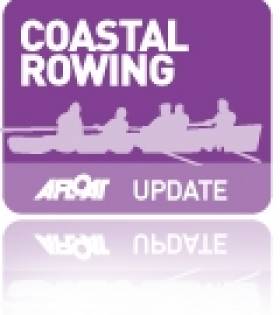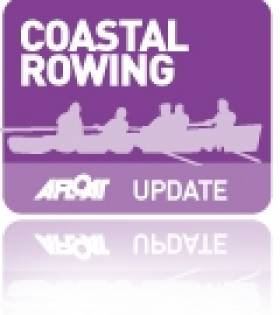Displaying items by tag: Carnlough
Antrim Marinas & Harbours to Be Dredged Over Winter
Two marinas and two harbours in the Mid and East Antrim Council area will be dredged over the coming winter and following Spring. They are Carnlough Harbour and Glenarm Marina on the Antrim Coast Road and Carrickfergus Marina and Harbour on the north shore of Belfast Lough.
Carnlough Harbour will be closed from Monday 1st November until Friday 19th November 2021 and Carrickfergus Harbour from Thursday 24th March 2022 until Tuesday 17th May 2022.
 Carnlough Harbour
Carnlough Harbour
Glenarm Marina dates are from Friday 19th November until Thursday 16th December 2021 and Carrickfergus Marina will be dredged from Thursday 16th December 2021 until Thursday 24th March 2022. The marinas and harbours were due to be dredged as some areas are now below the minimum depths as per hydrographic surveys.
 Glenarm Marina Photo: Tourism NI
Glenarm Marina Photo: Tourism NI
The Council has warned that these dates are subject to movement based on contractual changes and effects of weather. A further notice to mariners will be issued if the programme changes.
The largest number of boats affected will be those berthed in Carrickfergus which has a capacity of 300. It was dredged in 2015. Glenarm has recently had extra berths added to make the total 50. Carnlough lies 16 miles south of Fair Head and is used mainly by pleasure boats and small fishing vessels.
 Carrickfergus Harbour Photo: Rossographer
Carrickfergus Harbour Photo: Rossographer
The contractors are the 192-year-old Charles Brand Ltd company based in Sydenham, Belfast and Foyle and Marine Engineering JV with HQ in Claudy, Co. Londonderry.
Karena Catterson, Maritime Development Officer at Carrickfergus Marina stated that Berth Holders were given various options for the period of dredging:
- They can lift their boat out and receive a full refund for their berthing during the dredging period and Council will pay 50% of their lift in and out costs.
- They can relocate to another marina of their choice for which Council will pay full costs. In cases where berthing fees are cheaper, the difference in costs will be refunded.
- They can remain in the marina and receive a 30% discount on their fees, and where it can be facilitated access will be granted for emergencies.
- Liveaboards will remain in the marina as normal.
Some boat owners have arranged to move to Bangor Marina where Kevin Baird, Harbour Master and Marina Manager, is making plans; “We are in the planning/berth allocation stage, and we know that some of those who have booked in with us will be arriving early. Hopefully, all goes to plan, and the weather stays calm to allow barges to dump at the designated spoil site”.
Killorglin Rowing Club Excel at Irish Coastal Rowing Championships
#COASTAL ROWING: Killorglin won the final event of the day, the men’s four, at an Irish Coastal Rowing Championships which were blessed by good conditions at Lough Currane, Waterville, County Kerry. The blue riband event had gone to Cork clubs for the last four years, but Killorglin’s crew of Cathal Clifford, Cian Clifford, Seán Deignan and stroke Fionnán Crowley brought it back to the host county. Killorglin’s women’s four – stroked by Aileen Crowley – also won.
The award for Sporting Club of the Day went to Carnlough of Antrim, while Ring from Cork had taken the title of best overall junior club, and Cairndhu the best adult club.
Irish Coastal Rowing Championships, Waterville, Kerry (Selected Results, Finals Winners)
Men
Senior: Killorglin. Intermediate: Caherciveen. Junior: Ring. Under-21: Whitegate. Under-18: Passage West. Under-16: Killorglin.
Veterans: Portmagee. Pre-Vet: Fossa.
Women
Senior: Killorglin. Intermediate: Passage West. Junior: Galley Flash.
Under-21: Killorglin. Under-18: Sneem. Under-16: Kilmacsimon.
Veterans: Myross. Pre-Vet: Arklow.
Mixed
Senior: Killorglin. Veterans: Portmagee. Pre-Vet: Portmagee.
Coastal Rowers Converge on Carnlough for All-Ireland
#AllIrelandCoastal: The All-Ireland Coastal Rowing Championships have drawn an entry of 361 crews from 35 clubs (equivalent to 1800 rowers competing) to Carnlough in County Antrim this weekend. Competition begins today and runs through to Sunday. The organisers hope to have live webcam coverage on livestream
Friday Race Order – Start Time 4pm.
1. Open Classic Men
2. Open Classic Ladies
3. FISA X2 Men
4. FISA X1 Ladies
5. Cork Yawl Men
6. Cork Yawl Ladies
7. FISA X2 Ladies
8. FISA X1 Men
Saturday Race Order – Start Time 9am.
1. Mixed Vets – Heat 1
2. Mixed Vets – Heat 2
3. U12 Girls – Final
4. U21 Ladies – Final
5. Senior Mixed – Heat 1
6. Senior Mixed – Heat 2
7. U16's – Heat 1
8. U16's – Heat 2
9. U14 Girls – Heat 1
10. U14 Girls – Heat 2
11. Masters Ladies & Masters Men – Final
12. Heritage Ladies – Final
13. Heritage Men – Final
14. U18's – Heat 1
15. U18's – Heat 2
16. U16 Ladies – Heat 1
17. U16 Ladies – Heat 2
18. Vet Ladies – Heat 1
19. Vet Ladies – Heat 2
20. U14's – Heat 1
21. U14's – Heat 2
22. Junior Ladies – Heat 1
23. Junior Ladies – Heat 2
24. Intermediate Men – Heat 1
25. Intermediate Men – Heat 2
26. Senior Men – Heat 1
27. Senior Men – Heat 2
Sunday Race Order – Start Time 9am.
1. Vet Men
2. Senior Mixed
3. U12's
4. Pre-Vet Mixed
5. U18's
6. Vet Ladies
7. U16 Girls
8. U14's
9. Pre-Vet Men
10. U18 Ladies
11. Mixed Vets
12. U21's
13. Pre-Vet Ladies
14. U14 Girls
15. U16's
16. Intermediate Ladies
17. Junior Ladies
18. Senior Ladies
19. Intermediate Men
20. Junior Men
21. Senior Men.
35 clubs, 361 crews which equals 1800 rowers participating.






























































